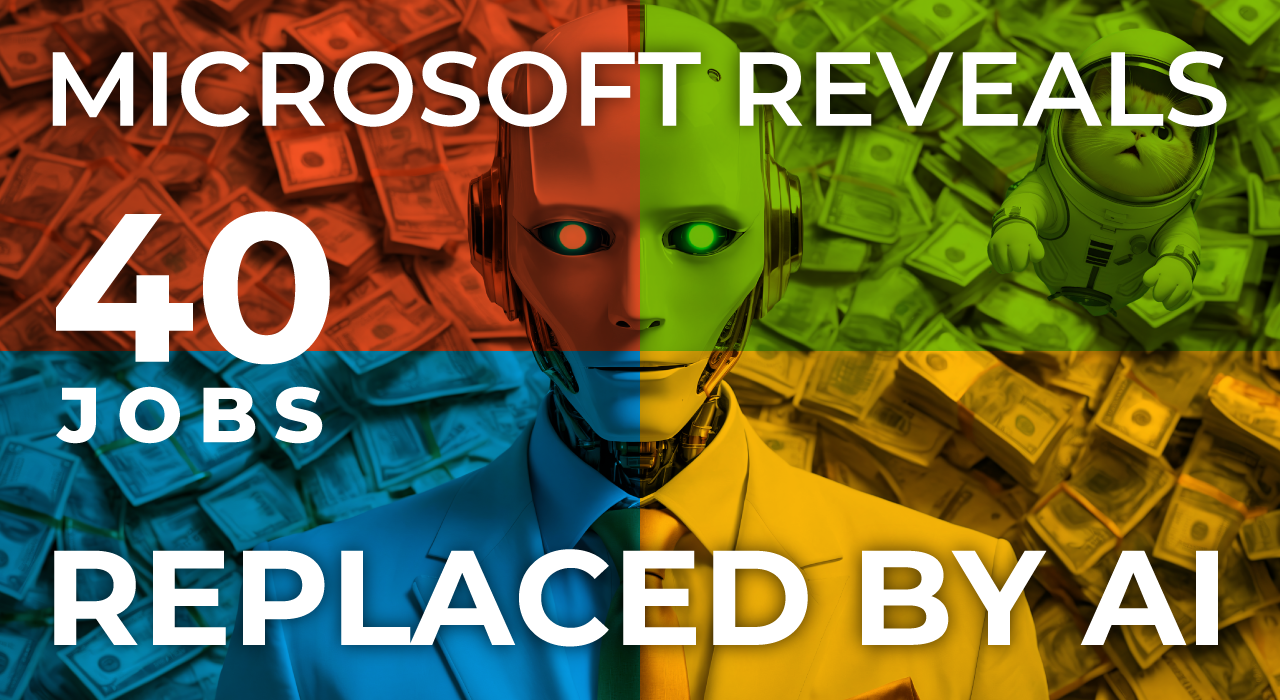
We're all wondering the same thing: is AI going to take my job? While experts have been making predictions left and right, a fascinating new study from Microsoft Research decided to skip the guesswork and look at what's actually happening. They analyzed over 200,000 real conversations between people and Microsoft's Bing Copilot to see how AI is really being used at work.
The results? It's way more nuanced than "robots are coming for your job."
We're all wondering the same thing: is AI going to take my job? While experts have been making predictions left and right, a fascinating new study from Microsoft Research decided to skip the guesswork and look at what's actually happening. They analyzed over 200,000 real conversations between people and Microsoft's Bing Copilot to see how AI is really being used at work.
The results? It's way more nuanced than "robots are coming for your job."
Instead of just theorizing, the researchers did something clever. They looked at AI conversations from two angles:
What people are trying to do (getting AI help with their tasks)What AI is actually doing (the work it performs in the conversation)
This distinction matters because it separates AI helping you do your job better from AI potentially replacing parts of your job. And here's the kicker: in 40% of conversations, these were completely different activities.
Think about it this way—if you ask AI to help you understand a complex recipe, you're trying to cook (your goal), but the AI is acting like a cooking instructor (its role). You're still the one doing the cooking.
The research revealed some clear patterns in how we're really using AI at work:
Information hunting is huge—people constantly ask AI to research topics, gather data, and find specific information. It's like having a super-powered research assistant.
Writing help is everywhere—from drafting emails to editing documents to creating content. AI has become our go-to writing buddy.
Explaining stuff rounds out the top three—people use AI to help them communicate complex ideas to others or understand difficult concepts themselves.
On the flip side, AI consistently plays the helpful assistant role—providing information, teaching, advising, and coaching. It's less "I'll do your job" and more "let me help you do your job better."
Here are the jobs where AI is making the biggest splash:
Top 15 Most AI-Applicable Jobs:
And here are the jobs where AI barely makes a dent:
Bottom 15 Least AI-Applicable Jobs:
Highest Impact Industries:
Lowest Impact Industries:

Grammarly is an AI-powered writing assistant that helps improve grammar, spelling, punctuation, and style in text.

Notion is an all-in-one workspace and AI-powered note-taking app that helps users create, manage, and collaborate on various types of content.
AI absolutely crushes it when it comes to:
But it still struggles with:
Here's where things get interesting—and different from what many predicted.
Contrary to expectations, AI impact isn't concentrated among high earners. The study found only a weak connection between salary and AI applicability. You've got:
This suggests AI's workplace impact will be much more democratic than initially thought.
Jobs requiring a Bachelor's degree show slightly higher AI applicability (27%) compared to high school level jobs (19%), but there's huge overlap. AI tools might actually help level the playing field rather than create bigger divides.
The researchers compared their real-world data to expert predictions from previous studies and found something remarkable: the experts got it mostly right. There was a strong correlation (0.73) between predicted and actual AI impact across occupations.
This validates that theoretical analysis can effectively predict real-world adoption—but also shows the value of checking predictions against actual behavior.
Based on the data, these capabilities remain distinctly human:
This massive real-world study tells us that AI isn't coming to steal jobs wholesale—it's becoming a powerful collaborative tool that changes how we work. Most occupations will see some AI integration, but the impact varies dramatically.
The key insight? AI excels at information processing, communication support, and routine analysis, while humans remain essential for complex reasoning, relationship management, and hands-on work.
Rather than mass unemployment, we're likely heading toward a future where most jobs evolve to include AI assistance. The workers who thrive will be those who learn to dance with AI rather than fight against it.
The conversation between humans and AI is just getting started, and these 200,000 real interactions show us it's going to be more collaboration than competition. The future of work isn't about humans versus machines—it's about humans with machines, working together to get things done better than either could alone.

